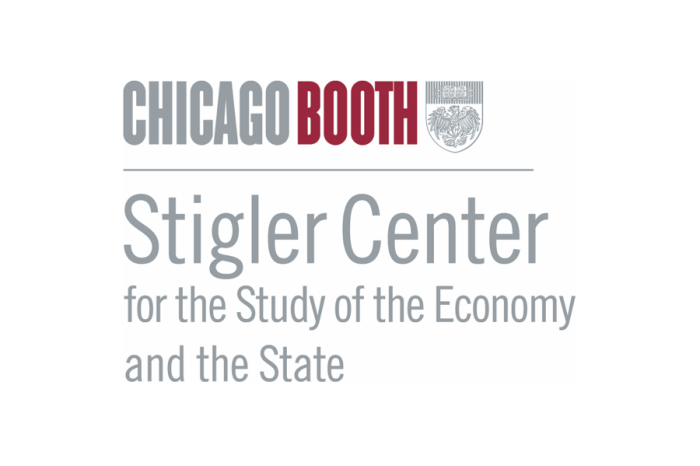On March 27-29, the Stigler Center will host a first-of-its-kind, three-day conference on the question of concentration in the U.S. economy that will bring together top economists, policymakers, regulators, journalists, and public intellectuals.
Does America have a concentration problem? In the past two years, the debate over concentration, market power, and bigness—and their potential effects on the U.S. economy—has increased. Both Hillary Clinton and Donald Trump promised to pursue more active antitrust policies during the run-up to the election, and both Democrats and Republicans were critical of the merger between AT&T and Time Warner. For the first time in decades, antitrust and antimonopoly sentiments had returned to American political discourse.
At the same time, economists, policymakers, and journalists have been increasingly concerned about a growing body of research that points to a potential decline in competition in most American industries.
ProMarket has covered much of this research, reviewing papers that studied the effects of consolidation in the wireless industry, in the airline sector, in finance, online platforms, health care, and the labor market. In the past year, some economists have linked increasing concentration to some of America’s biggest economic and political problems, such as the rise in inequality, prices, and rents.
In 2016, President Obama’s Council of Economic Advisers argued that anti-competitive behavior has led to inferior or overpriced products, wage stagnation, and entrepreneurs and small businesses being “squeezed out” by bigger competitors.
To many, however, the answer to the question “does America have a concentration problem?” is still inconclusive. Some economists, such as George Mason University professor and former FTC commissioner Joshua Wright, have disputed the data that points to a rise in market concentration, and argued that a high level of concentration does not necessarily mean a decline in competition or in quality.
On March 27-29, the Stigler Center at the University of Chicago Booth School of Business will host a first-of-its-kind, three-day conference in Chicago that will focus on the question of concentration in the American economy. The conference will bring together dozens of top academics from law, economics, history, and political science, policymakers, journalists, and public intellectuals. Margrethe Vestager, the European Commissioner for Competition, will give a video address.
The conference, organized by Professors Luigi Zingales and Guy Rolnik from the University of Chicago Booth School of Business, will revolve around seven main themes:
- What do the data tell us? Trends in concentration and competition.
- What does history tell us? The development of antitrust in America.
- Consolidation in the financial industry and its influence on antitrust.
- Winner-take-all digital platforms and big data.
- Information in the age of concentration.
- Concentration, market power, and inequality.
- Is there a role for political antitrust?
By looking at the issue from multidisciplinary perspectives, the conference will seek answers to some burning questions regarding concentration, competition, antitrust, and finance and how they evolve in the digital world. For instance, do the facts really support the prevalent narrative about the anti-competitive effects of rising concentration? Present-day challenges, such as inequality and the collection of consumer data by online platforms, will also be debated, as will the role of media and its ability to hold powerful actors to account in an era of dwindling financial resources for news media companies and the dramatic increase in the size and power of corporations, particularly digital giants.
The role of antitrust, and the question of whether it should restrain the political power of big business and special interest groups, will be examined from both historical and present-day perspectives, along with the interactions between market power, political power, and efficiency.<
/span>
A full program of the conference, along with more information, can be found here.






